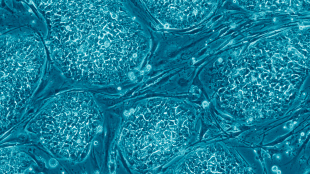 WIKIMEDIA, NISSIM BENVENISTYIn 2008, Thomas Skutella of the University of Tübingen and his colleagues published in Nature the results of a study that derived pluripotent stem cells from human testes. Now, following a correction and a subsequent study that questioned the cells’ pluripotency, the authors have retracted their paper.
WIKIMEDIA, NISSIM BENVENISTYIn 2008, Thomas Skutella of the University of Tübingen and his colleagues published in Nature the results of a study that derived pluripotent stem cells from human testes. Now, following a correction and a subsequent study that questioned the cells’ pluripotency, the authors have retracted their paper.
According to the retraction notice, the authors provided new data that “brought to light that the original conclusions are not as robust as presented in the original paper. Nature does not dispute the main claim that the cells are pluripotent to some level, but the level of proof of pluripotency shown is not in line with regular criteria for such papers in Nature.”
The correction, published in 2009, had to do with patient consent regarding the use of the donated cells. Evidently, some of the donors had not agreed to the distribution of the cell lines, and the authors were working to gain permission.
In 2010, another research group published results showing that the morphology and gene expression profile of the cells derived from testes ...




















